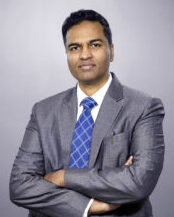We conducted two conferences in the first half of June, and though on different subjects, the recommendation that emerged was similar – the need for greater collaboration among multiple stakeholder disciplines. The first conference, the 7th Edition of DC Dialogue, on the District Cooling industry, on June 6 in Dubai, reiterated the message that centralised […]
We conducted two conferences in the first half of June, and though on different subjects, the recommendation that emerged was similar – the need for greater collaboration among multiple stakeholder disciplines.
The first conference, the 7th Edition of DC Dialogue, on the District Cooling industry, on June 6 in Dubai, reiterated the message that centralised chilled water schemes, if executed and managed properly, are essential for achieving the dream of carbon neutrality in modern-day urban habitats.

Surendar Balakrishnan
The operative words were ‘executed’ and ‘managed’. For quite some time now, there has been a growing feeling that District Cooling providers need to do more when it comes to embracing cutting-edge technological innovations that would increase efficiency and optimise the total cost of ownership. This topic received sufficient attention throughout and was the soul in the discussions revolving around regulation and around protecting the interests of developers and specialised District Cooling contractors. Indeed, the premise of the argument presented by developers and contractors was that addressing their needs was central to a more sophisticated expression of the full capability of District Cooling systems – including a framework of collaboration and cooperation in accepting new technologies – eventually leading to the buildings sector contributing more effusively to efforts aimed at carbon neutrality. A detailed account of the conference is featured in this issue of the magazine.
The second event, the 11th Edition of Food Chain (the Middle East Cold Chain Food Safety Conference), on June 15, in Dubai, was an occasion for food establishments to pinpoint the gaps in the cold chain and to highlight how better collaboration – as opposed to working in silos – could lead to far fewer temperature excursions of thermally sensitive food products, leading to better food safety and quality assurance (FSQA), nutrition and food security outcomes. Aspects such as reliability and energy efficiency cannot be wished into place; they need the thorough backing of specialised refrigeration expertise, but not working in isolation but in close coordination with food hygiene managers with a granular understanding of multiple food types and of how they interact with climatic conditions. A detailed account of Food Chain will be a key feature in the July issue of the magazine.
Hope you enjoy reading this issue, which offers much, much more besides the discussions on District Cooling.
Copyright © 2006-2025 - CPI Industry. All rights reserved.